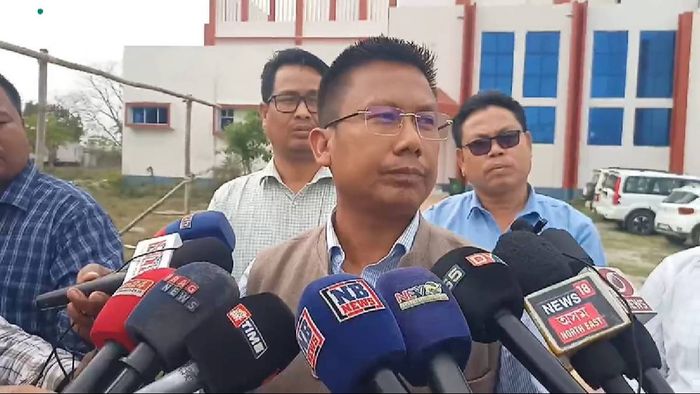Assam: ABSU President reacts to Gauhati High Court's verdict on Kokrajhar MP Naba Kumar
A verdict by the Gauhati High Court on Kokrajhar MP Naba Kumar Sarania's alleged fake tribal certificate has triggered a wave of reactions from political quarters in Assam. The case has implications for identity verification, political dynamics and electoral integrity in the region.

- Mar 27, 2024,
- Updated Mar 27, 2024, 12:38 PM IST
In response to the recent verdict by the Gauhati High Court regarding Kokrajhar MP Naba Kumar Sarania's alleged possession of a fake tribal certificate, a wave of reactions has emerged from various political quarters in Assam.
The verdict, which pertains to Sarania's purported possession of a fake tribal certificate, has stirred a mix of dissatisfaction and accusations. The All Bodo Students' Union (ABSU) has vehemently expressed its discontent, labeling the decision as unacceptable.
Dipen Boro, the ABSU President, asserted that the ruling has effectively paved the way for Sarania to potentially resume his position as an MP despite allegations of falsified documentation.
Boro emphasized the significance of upholding authenticity in tribal identity verification and underscored the implications of allowing individuals to hold public office based on fraudulent claims.
Contrastingly, senior Bodoland People's Front (BPF) leader Khampha Borgyari has condemned the verdict, alleging that it serves to disrupt the delicate balance of Bodo-non-Bodo politics within the Bodoland Territorial Council (BTC).
Borgyari conveyed a loss of trust in the judicial process, insinuating a targeted agenda against a specific community. The sentiment echoed by Borgyari suggests broader implications beyond individual accountability, hinting at potential political repercussions within the region.
In the midst of these reactions, there emerges a narrative of accountability and judgment by the people. Sarania's tenure as an MP, spanning a decade, comes under scrutiny as stakeholders question his contributions to the welfare of the populace.
The looming specter of electoral judgment looms large, with assertions that the fate of Sarania's political career will ultimately be decided by the electorate.
As the controversy surrounding Sarania's tribal certificate unfolds, it underscores the intersection of legal, political, and communal dynamics within Assam's political landscape.
The implications of this verdict resonate far beyond the individual, encapsulating broader themes of identity, governance, and electoral integrity.